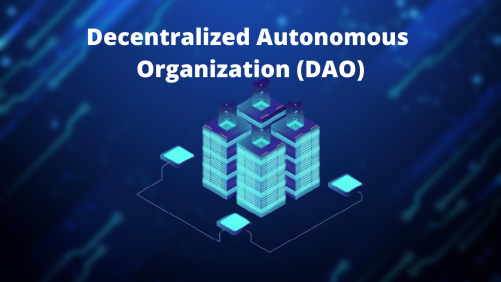All about DAO and how it works
Aug 26, 2022

What is DAO?
DAO stands for Decentralized Autonomous Organization. The DAO is owned and managed by the members of the organization themselves based on a specific set of rules that are enforced on the blockchain. They have coffers or treasury built into the system that can only be accessed with the consent of the members. When a decision needs to be made, the members of the DAO will put the proposal for the members to vote on within a certain period of time.
How DAO works
As mentioned above, a DAO is an organization where decisions are made from the bottom up, i.e., from the collective of members that own the organization. There are different ways to participate in a DAO. The most common way is usually through owning the token of that DAO.
The rules of the DAO are established by a core group of members of the community through the use of smart contracts. These smart contracts lay out the foundational framework on which the DAO will operate. They can be easily verified and publicly auditable so that any member can fully understand how the protocol works at every step.
Token holders, or shares in the DAO, then have the right to vote and influence how the organization operates by deciding or creating new governance proposals. A proposal will only be adopted when a majority of the other shareholder members approve it. Regulations on how to vote and how many shareholders approve will depend on each DAO and are specified in smart contracts.
DAOs are completely autonomous and transparent because they are built on the open-source blockchain, so anyone can see the code or check their treasury, as the blockchain records all financial transactions.
Some DAOs to learn and join
There are various types of DAOs, all of which serve as a governance mechanism to ensure that every proposal is voted on, reviewed, and implemented in the best interest of the community. The following is a classification of the main DAOs, along with specific examples, so you can easily learn and start approaching DAOs.
Token-based DAO
As the name suggests, tokens play an important role in the operation of the DAO. Most of these governance tokens can be freely traded on decentralized exchanges (DEXs) or earned through providing liquidity or other ‘proof-of-work.’ Either way, being a token holder gives you voting rights in the DAO.
An excellent example of a token-based DAO is MakerDAO – MakerDAO’s MKR token is widely available on decentralized exchanges. So anyone can buy tokens and have voting rights on the future of the Maker protocol.
In addition, other DAO-based tokens can be mentioned, such as Mirror DAO, Friend with benefit DAO, BeetsDAO, UniSwap, Aragon, Compound, etc.
Share-based DAO
Although these DAOs are also quite open, participation and voting rights are more limited than token-based DAOs. Anyone can submit a proposal to join the DAO, but that comes with a contribution of some value, such as a token or the result of a job. Share-based DAO represents a group or organization with a common goal in a certain field, typically venture DAOs that focus on investing. Members will use shares to vote on the organization’s activities. Members can leave the DAO at any time with their respective capital contributions.
A typical share-based DAO can be named MolochDAO – MolochDAO focuses on funding Ethereum projects. You cannot participate by buying tokens on exchanges. Instead, Moloch will evaluate members’ expertise and investment opportunities. Potential investment.
A few other share-based DAO names you can look up to are MetaCartel Ventures, BitDAO, The LAO, Flamingo, Duck DAO, and more.
Ending
DAO is a trend in the crypto world. Many experts have also commented that unicorns and big companies in the future will be built on the DAO model. However, the DAO still has many aspects and elements that need to be discussed and improved.